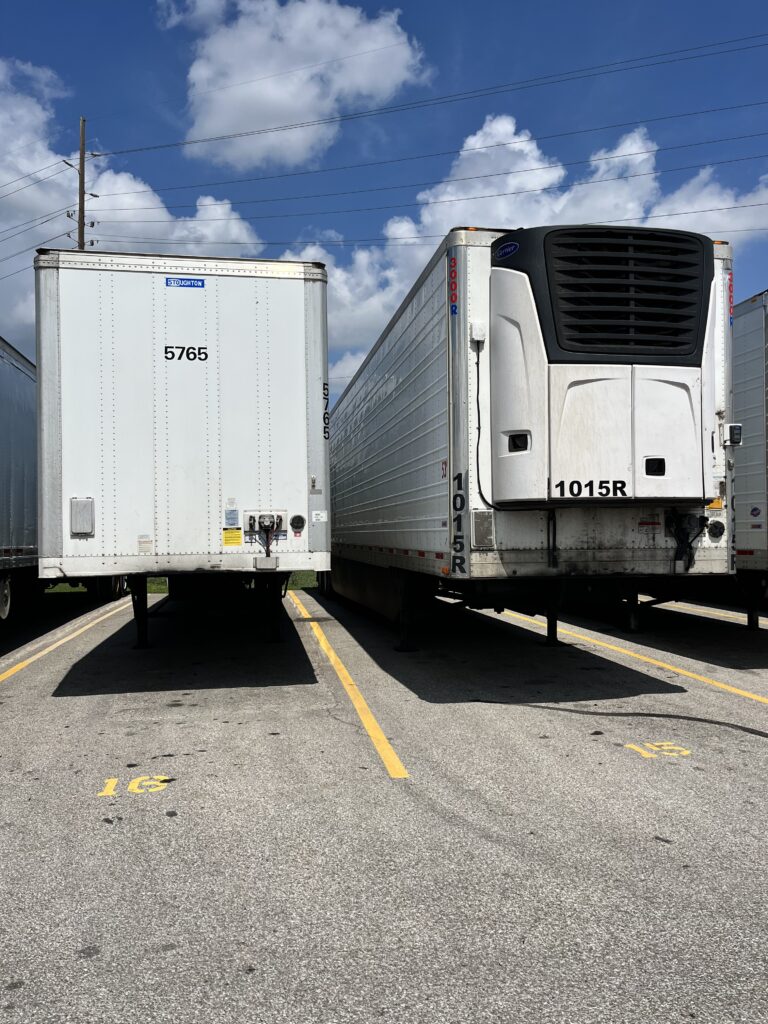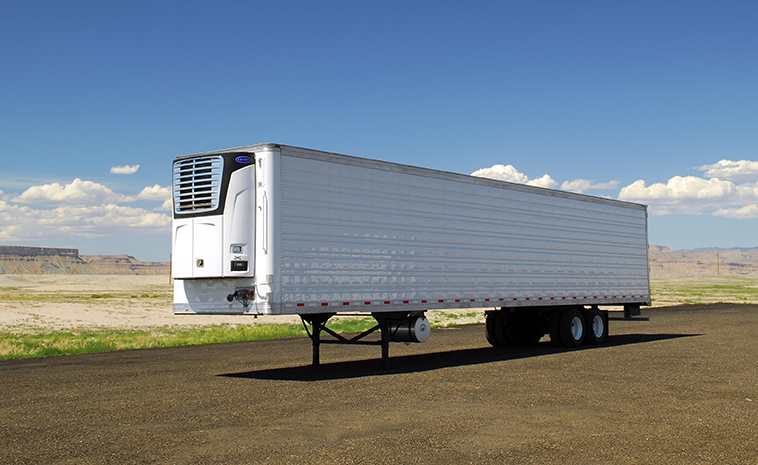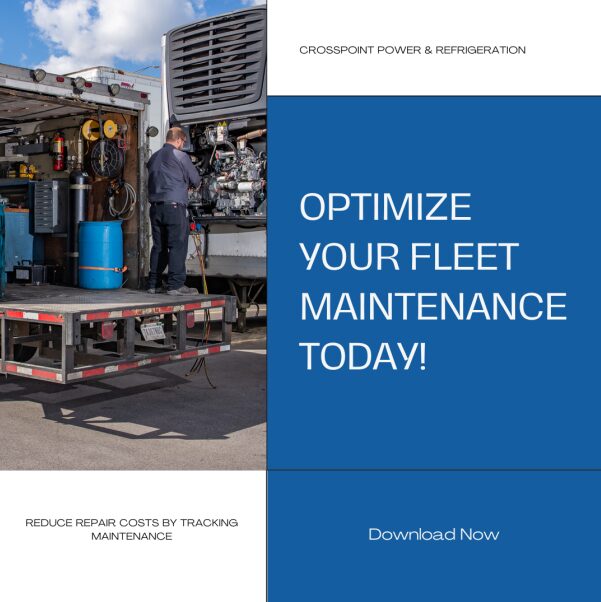 If you’re familiar with transportation and logistics, you’ve likely heard about dry vans and reefers. These terms refer to the cargo area of trucks or trailers, with dry vans used for non-refrigerated products, and reefers designed to carry temperature-controlled goods. This article will highlight the key distinctions between these two types of trucks and trailers, shedding light on their benefits and associated costs.
If you’re familiar with transportation and logistics, you’ve likely heard about dry vans and reefers. These terms refer to the cargo area of trucks or trailers, with dry vans used for non-refrigerated products, and reefers designed to carry temperature-controlled goods. This article will highlight the key distinctions between these two types of trucks and trailers, shedding light on their benefits and associated costs.
Key Differences between a Reefer and Dry Van:
The Product Hauled
The primary difference between a dry van and reefer lies in the products they can transport. While dry vans are suitable for non-refrigerated goods, Reefers are necessary for temperature-sensitive items like food, pharmaceuticals, and chemicals. Even bubble gum and lab rats need to be transported in specific ranges in temperature.
Temperature Control Features
Reefers are equipped with advanced cooling and heating systems, like the Carrier refrigeration unit, which can maintain temperatures as low as -22 degrees F and as high as 95 degrees F. This heating capability is crucial when transporting items susceptible to freezing, such as paint.
Structural Design
While dry vans have thin walls to reduce weight and keep the cargo dry, reefers feature insulated walls designed to efficiently maintain box temperature. On the front of refrigerated trailers, a reefer unit with a small diesel engine controls the internal temperature. A control panel on the driver’s side allows adjustments and monitoring, while a separate fuel tank for the reefer unit is mounted under the trailer.
Reduced Capacity and Additional Costs
Reefer trailers have approximately 3″ insulation on the walls, which reduces interior capacity compared to standard dry vans. Additionally, the specialized features of reefers, such as the refrigeration unit, insulation, and fuel tank, make them around three times more expensive than dry vans. Some reefer trailers with partitioned compartments for different goods can be even costlier.
Special Maintenance Requirements
Reefer trailers require specific maintenance due to the mechanical nature of their refrigeration units. Regular service, at least once a year, is essential to ensure proper functioning and prevent breakdowns. These additional costs and risks contribute to higher transportation rates for refrigerated products compared to dry freight.
Flexibility in Hauling
One advantage of operating a reefer is the versatility to transport both refrigerated and dry products. Dry vans, on the other hand, are limited to non-temperature-controlled cargo. This flexibility allows businesses to capitalize on various loads depending on demand.
Deciding between a dry van or reefer involves considering several factors. Reefers offer flexibility in hauling different products, but the higher costs associated with their specialized features and maintenance should be carefully weighed. If you’re interested in the transport refrigeration business, feel free to reach out to us for support throughout the entire lifecycle of your unit, from selecting the right one to maintenance and replacement decisions.
 Can You Use a Reefer as a Dry Van?
Can You Use a Reefer as a Dry Van?
While you can technically use a reefer as a dry van, it is not the most efficient or cost-effective solution for hauling non-temperature-sensitive goods. The added expenses and limitations in cargo capacity and temperature control should be carefully evaluated before making such a decision. For businesses that frequently transport both temperature-sensitive and non-sensitive products, maintaining a separate fleet of dry vans and reefers would be the most practical approach to ensure the best transportation solutions for different cargo types.
If you are looking to get into transporting refrigerated freight or have additional questions, contact us or give us a call at 317-240-1976.

